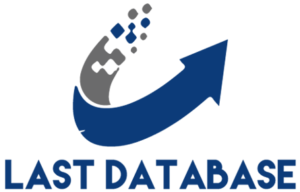Personalization, powered by big data, is one of the most transformative forces in today’s digital economy. From tailored product recommendations to hyper-targeted advertisements, personalization enhances customer experiences and drives business success. However, the increasing ability to track, analyze, and predict consumer behaviors raises important ethical concerns.
As companies gather more personal data to create personalized experiences, they must confront the dilemma of balancing the value of personalization with the responsibility of safeguarding individual privacy, ensuring fairness, and promoting transparency. This challenge necessitates careful thought and ethical consideration to avoid exploitative practices while still delivering value to consumers.
The Power and Promise of Personalization
Personalization offers significant benefits, not only for businesses but also for consumers. By tailoring services and advertisements to individual preferences, companies can improve customer satisfaction, streamline user experiences, and drive higher conversion rates. For instance, recommendation engines on platforms like Amazon and Netflix enhance the user experience by suggesting products and content based on past behavior, making it easier for consumers to find what they need.
Personalized marketing allows businesses to target specific audiences with relevant messages, often resulting in more effective campaigns and stronger customer relationships.
The Privacy Risks of Personalization
While personalization offers clear benefits, it also presents significant privacy risks. As businesses collect large amounts of personal data, often without consumers’ explicit awareness, the potential for privacy violations grows. For example, many italy email list consumers do not fully understand the extent to which their online behaviors—such as browsing history, social media interactions, or location data—are being tracked.
This erosion of privacy is perhaps the most pressing ethical challenge posed by personalization technologies.
Informed Consent and Transparency in Data Practices
To balance the benefits of personalization with ethical responsibility, companies must ensure that they obtain informed consent from users before collecting and using their data. Currently, many privacy policies are long, convoluted, and difficult for the average consumer to comprehend.
Informed consent requires more than just a checkbox on a website—companies must provide transparent, accessible, and easily understandable explanations of their data practices. Only with clear and transparent consent can businesses ensure they are ethically handling consumer data.
Mitigating Bias and Discrimination in Personalization Algorithms
Another ethical concern in personalization is the potential for algorithmic bias. Personalization technologies often rely on algorithms to process and analyze vast amounts of data to create tailored experiences. For instance, an algorithm might suggest products or services primarily to certain demographics while excluding others.
In targeted advertising, this could telegram materials result in certain groups being unfairly targeted or excluded from opportunities. Ensuring fairness in personalization requires businesses to be vigilant about potential biases in their data and algorithms. Companies must actively audit their systems to identify and mitigate bias, ensuring that their personalization efforts do not reinforce harmful stereotypes or create inequitable outcomes.
The Role of Ethical Guidelines and Regulation
As the ethical concerns surrounding personalization continue to evolve, the need for robust ethical guidelines and regulatory frameworks becomes ever more important. In some regions, such as the European Union, regulations like the cz leads General Data Protection Regulation (GDPR) have already set strict standards for how personal data should be handled. These regulations aim to protect individuals’ privacy rights, ensure transparency in data practices, and provide consumers with greater control over their data.
Companies should proactively adopt ethical standards, such as implementing data anonymization techniques, fostering consumer empowerment, and prioritizing data security, while also adhering to existing laws.







